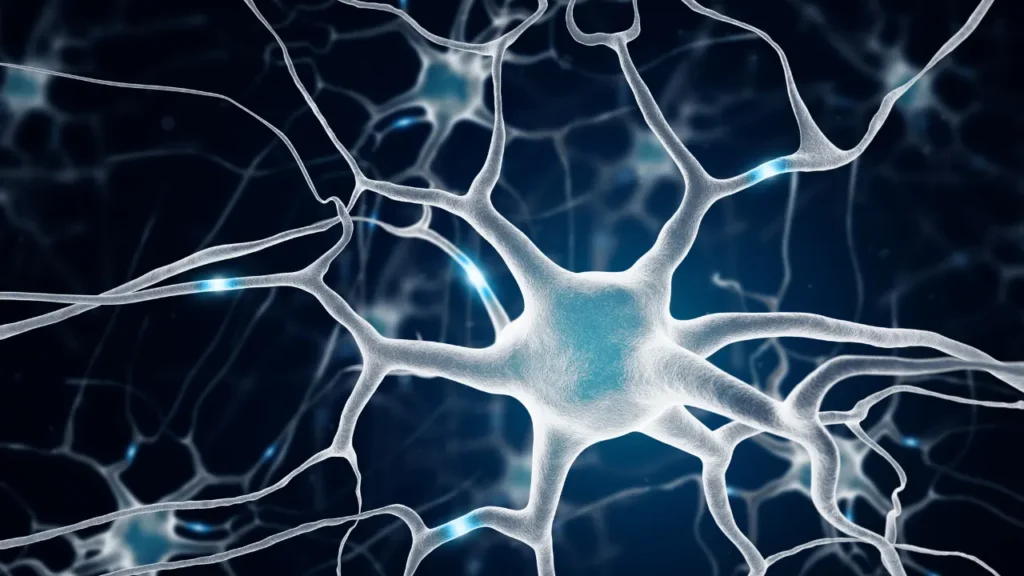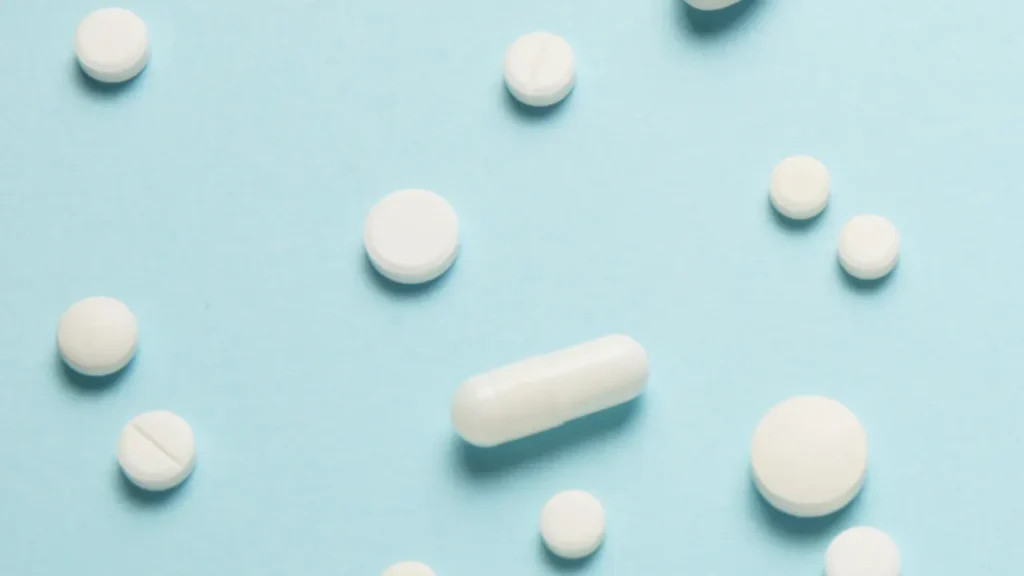Turkey corn, formally known as Corydalis cava, is a perennial herbaceous plant in the Papaveraceae family, which contains noteworthy species like the opium poppy. This plant has been utilized in traditional medicine throughout history, particularly in Europe and Asia for its potential health advantages, which include pain relief and the treatment of moderate depression. In recent years, there has been a growing interest in using it as a nootropic supplement. This article provides a complete description of turkey corn, including its nature, health benefits, ideal dosage, adverse effects, potential substance interactions, and other important information.
You May Also Like:
CBD for Concentration: The Productivity Hack for Energy and Focus
Sunmed CBD vs. Partnered Process CBD: Finding the Best CBD for Sleep
Turkey Corn: Benefits, Dosage, Side Effects, Drug Interactions, and Other Important Information is an original (NootropicsPlanet) article.
Nature of Turkey Corn
Turkey corn is distinguished by its tuberous root structure and purple or occasionally white blossoms that bloom in early spring. The active chemicals in turkey corn are largely alkaloids, such as corydaline, tetrahydropalmatine, and dehydrocorybulbine. These chemicals are thought to contribute to the plant’s pharmacological effects, which affect numerous neurotransmitter systems in the human body.
Health Benefits of Turkey Corn
The health advantages of turkey corn are mostly due to its alkaloid content, which has been shown to have a variety of pharmacological properties. The most notable of them is the potential for pain relief, which is considered to be mediated by the inhibition of dopamine D2 receptors, producing an analgesic effect without the addictive features of typical opioid drugs. Furthermore, turkey corn has been shown to have anxiolytic and sedative qualities, which would be advantageous for people suffering from anxiety disorders or those looking to improve focus and cognition by lowering stress and anxiety.
Turkey corn’s nootropic benefits are still being studied, but preliminary findings suggest that it may increase cognitive function by altering the dopaminergic and serotonergic systems, thereby increasing alertness and focus. Furthermore, turkey corn may protect neurons from injury due to its antioxidant characteristics, adding to its potential as a cognitive enhancer.

Chemistry of Turkey Corn
As mentioned, turkey corn’s pharmacological characteristics are based on its bioactive components, which predominantly include alkaloids such as corydaline, tetrahydropalmatine (THP), and dehydrocorybulbine (DHCB). These alkaloids have a similar structural feature: a benzyltetrahydroisoquinoline skeleton, which is essential for their interaction with neurotransmitters. Corydaline is known for its ability to alter pain perception, whereas THP is known for its sedative and anxiolytic properties. DHCB, on the other hand, has gained attention for its function in pain management while avoiding the addictive potential of opioids.
Physiological Mechanism of Action of Turkey Corn
The physiological mechanisms by which turkey corn exerts its effects are multifaceted, involving several neurotransmitter systems. The primary mode of action appears to be the modulation of the dopaminergic and serotonergic systems, which are critical in regulating mood, anxiety, and cognition.
Dopaminergic System: Turkey corn’s alkaloids, particularly THP, operate as dopamine D2 receptor antagonists. By blocking these receptors, THP can enhance dopamine availability in the brain, improving mood and cognitive functions including focus and attentiveness. This process is especially pivotal to turkey corn’s nootropic benefits because dopamine is important for attention and executive skills.
Serotonergic System: Turkey corn may also interact with serotonin receptors, which contributes to its ability to reduce anxiety and anti-depressant properties. While the specific method is unknown, it is speculated that turkey corn components may alter serotonin levels, either by blocking reuptake or by acting directly on serotonin receptors. This modification of the serotonergic system can assist improve mood and reduce anxiety, thereby boosting cognitive development by providing a more conducive mental environment for focus and learning.
Pain Perception and Neuroprotection: The analgesic benefits of turkey corn, which are principally linked to DHCB, entail the blockage of pain impulses at the spinal cord. This activity is thought to be achieved by calcium channel blockage and NMDA receptor modulation, lowering pain perception without the dependency concerns associated with opioids. Furthermore, the antioxidant capabilities of turkey corn alkaloids may protect neurons from oxidative stress and improve cognitive resilience over time.


Optimal Dosage of Turkey Corn
The lack of scientific data available makes it difficult to determine the ideal dosage of turkey corn, especially for nootropic advantages. However, traditional use and preliminary research indicate that low to moderate doses may be beneficial in producing the desired cognitive enhancing effects while minimizing the danger of negative effects. You should start with the lowest possible dose and gradually raise it based on your tolerance and response. It is usually recommended that you consult with a healthcare practitioner before taking any new supplement, including turkey corn.
Side Effects of Turkey Corn
While turkey corn is generally regarded as safe when consumed in moderation, some people may experience symptoms such as nausea, dizziness, or headaches. These adverse effects are usually modest and temporary, but they can be reduced by sticking to the appropriate dosages. There is also a danger of hepatotoxicity with long-term usage or large doses, emphasizing the significance of professional advice while using turkey corn as a supplement.


Potential Substance Interactions with Turkey Corn
Turkey corn’s impact on neurotransmitter systems may cause interactions with certain drugs and substances. For example, it may potentiate the effects of sedatives or anti-anxiety drugs, resulting in severe sedation. Similarly, combining turkey corn with other dopamine-modulating drugs may cause unanticipated changes in mood and cognition. Individuals taking any drugs should contact a healthcare provider to determine the possibility of interactions before integrating turkey corn into their diet.
Responsible Use of Turkey Corn as a Nootropic
There are some important factors to consider while utilizing turkey corn as a nootropic. To begin, you must verify the supplement’s source and quality as active ingredient concentrations might vary dramatically between goods. Second, you should regularly evaluate your reaction to the supplement, modifying the amount as appropriate to maximize benefits while reducing side effects. Finally, long-term use should be approached carefully by taking frequent pauses and checking with healthcare specialists to monitor potential adverse effects or interactions with other substances.
Turkey Corn:
Conclusion
In summary, turkey corn can also be known as corydalis cava which is a perennial herbaceous plant found in the Papaveraceae family. This plant has a tuberous root structure and has occasional white blooms in early springs. Turkey cords contain a majority of alkaloids which makes it a suitable supplement for analgesic use. This is because alkaloid content has potential pain relief properties which may also protect the neurons from oxidative damage. However, as a user, you must be aware that since turkey corn affects your brain function, combining this supplement with drugs like anticonvulsants or antidepressants may lead to negative side effects. Hence, you must seek personalized medical advice before starting turkey corn supplementation.


References:
- Application Of BACE1 Immobilized Enzyme Reactor for The Characterization of Multifunctional Alkaloids from Corydalis Cava (Fumariaceae) As Alzheimer’s Disease Targets. Retrieved from:https://pubmed.ncbi.nlm.nih.gov/26779945/
- Screening Of Plants Used in Danish Folk Medicine to Treat Memory Dysfunction for Acetylcholinesterase Inhibitory Activity. Retrieved from:https://www.sciencedirect.com/science/article/abs/pii/S0378874105006550
- Corylucinine, A New Alkaloid from Corydalis Cava (Fumariaceae), And Its Cholinesterase Activity. Retrieved from:https://pubmed.ncbi.nlm.nih.gov/22908564/
Important Note: The information contained in this article is for general informational purposes only, and should not be construed as health or medical advice, nor is it intended to diagnose, prevent, treat, or cure any disease or health condition. Before embarking on any diet, fitness regimen, or program of nutritional supplementation, it is advisable to consult your healthcare professional in order to determine its safety and probable efficacy in terms of your individual state of health.
Regarding Nutritional Supplements Or Other Non-Prescription Health Products: If any nutritional supplements or other non-prescription health products are mentioned in the foregoing article, any claims or statements made about them have not been evaluated by the U.S. Food and Drug Administration, and such nutritional supplements or other health products are not intended to diagnose, treat, cure, or prevent any disease.
